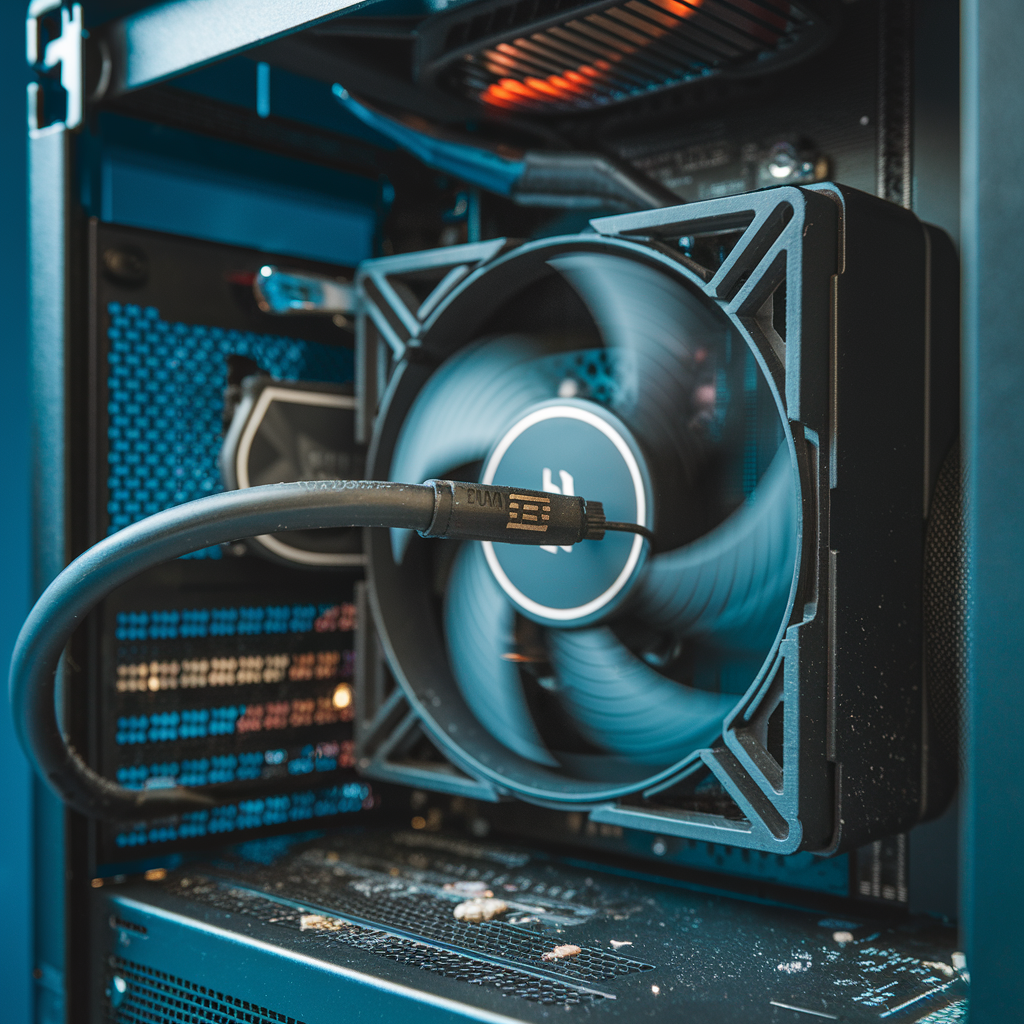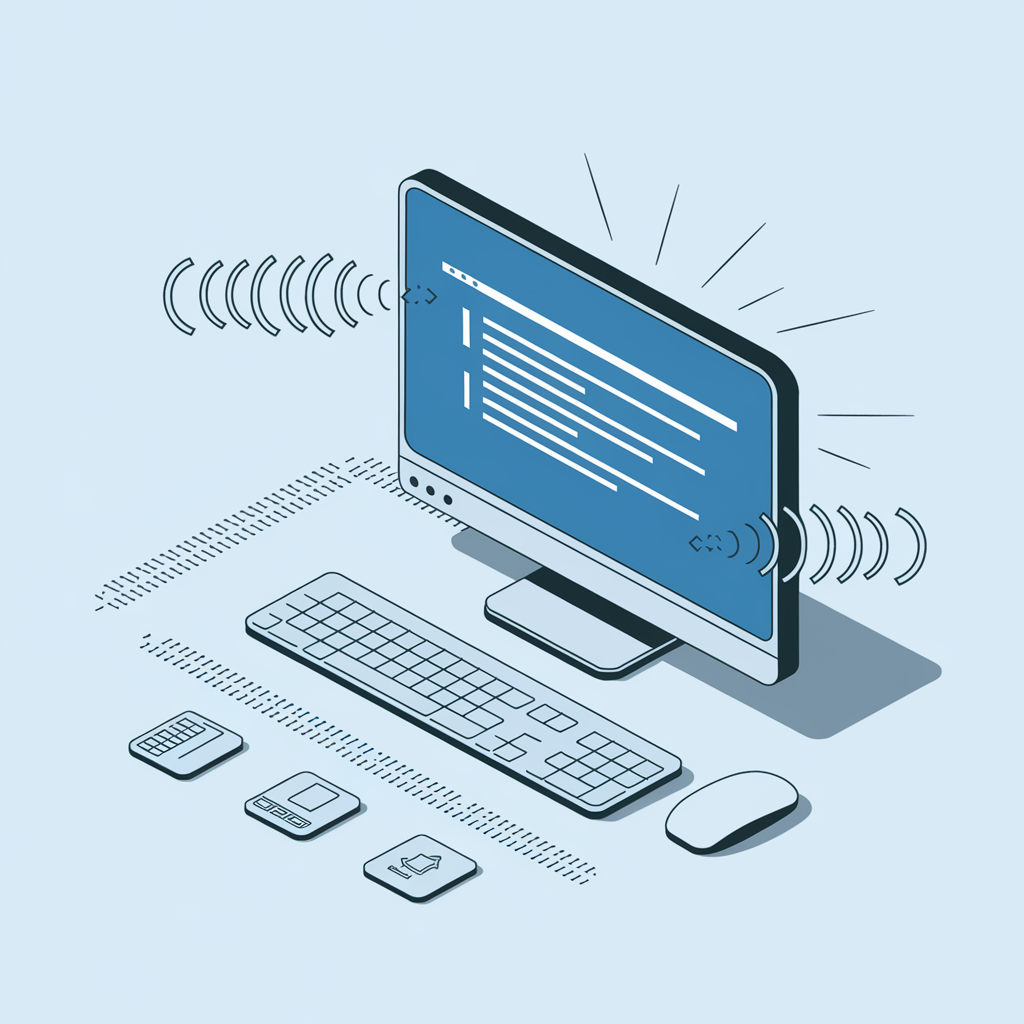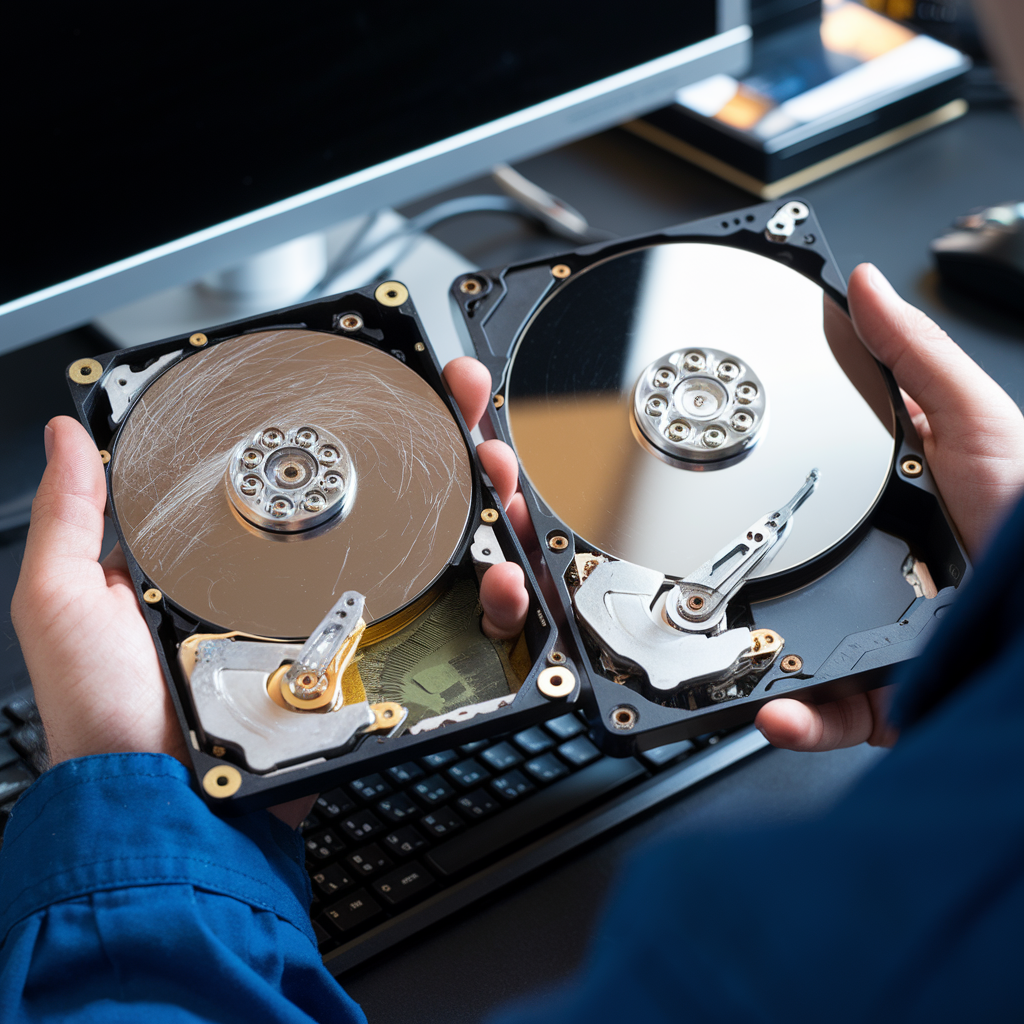New computers often hum along quietly, but as time goes by, they might start making unusual noises that can be both concerning and confusing. Have you ever wondered what’s that weird noise coming from your computer? from clicks and clunks to jet-engine roars, these sounds can mean different things. Knowing what they indicate can help you take action before small problems become major issues. In this guide, we’ll help you decode these sounds and understand when it’s time to call in the experts.
Why Is Your Computer Making Noise?
Computers are complex devices with multiple moving parts and components that, over time, can start making various sounds. Understanding what’s normal and what isn’t can be the difference between a quick fix and an expensive repair. Here’s a breakdown of the main types of noises your computer might make and what they typically signify.
1. Clicking Noises: Are They Normal or a Sign of Trouble?
Clicking sounds can be alarming, especially when they come out of nowhere. However, not all clicking noises are problematic. Sometimes, they are just part of your hard drive’s normal operation.
What Causes the Clicking Sound?
If your computer uses a mechanical hard drive, it works similarly to a record player, with a “needle” that moves across a spinning platter. As it operates, it may produce soft ticks or light clicks, especially when it’s reading or writing data. However, a loud or repetitive clicking noise is usually not a good sign.
When to Be Concerned About Clicking
When a hard drive begins clicking loudly, it may indicate that the needle inside is having trouble staying stable. It could be hitting the platter more forcefully or bouncing, which risks scratching the disk surface and damaging your data. Left unchecked, this can lead to irreversible data loss and drive failure.
2. Clunking Sounds: What’s That Sound?

Clunking is one of the most worrisome noises you can hear from a computer because it often indicates a mechanical issue. While not as common as clicking or fan noises, clunking sounds demand immediate attention.
Why Is Your Computer Clunking?
Sometimes, a clunking sound could be a simple issue, like a cable that has come loose and started hitting the fan blades. This can happen if a cable or wire is near a spinning fan and gets pushed into it. However, the clunk could also come from more serious hardware issues, such as problems within the hard drive or other components.
What to Do When You Hear Clunking
If you hear clunking noises, stop using the computer and have it inspected by a professional. In many cases, a technician can reposition the cable or identify the source of the noise to prevent further damage.
3. Jet-Engine Noise: Fans Working Overtime?
When your computer sounds like it’s preparing for takeoff, it’s typically because the fans are working extra hard. Fans are essential for keeping your computer cool, but unusually loud or constant fan noise can point to several issues.
What Causes Loud Fan Noise?
Fans spin faster to dissipate more heat when your computer is under stress, such as during gaming or video editing. However, if your computer sounds like this even when idle, it could indicate a problem. Common causes include:
- Dust buildup: Dust clogs vents and makes it harder for fans to cool the system.
- Poor ventilation: Keeping your computer in a cramped or unventilated space traps heat.
- Worn-out fans: Over time, the ball bearings inside fans wear down, making them noisier.
How to Fix Jet-Engine Noises
A professional can clean out dust, replace worn fans, and check if other hardware issues are causing overheating. Proper ventilation is also key—ensure your computer has space to “breathe.”
4. Beeping Sounds: What’s Your Computer Trying to Tell You?

If you’re hearing beeps instead of mechanical sounds, your computer is likely trying to communicate an error. Many computers emit a single beep at startup to signal everything is okay, but multiple beeps can indicate a hardware problem.
Decoding the Beeps
Each series of beeps represents a different issue. For example:
- Memory issues: A specific pattern of beeps may indicate loose or damaged memory.
- Graphics or video issues: Beeps can signal a problem with the video adapter or graphics card.
- Processor issues: Certain beep sequences can alert you to issues with the CPU.
How to Respond to Beeping
If your computer’s beeping pattern changes, consult a technician who can decode the signals and identify the underlying problem. Ignoring these beeps can lead to serious hardware failures.
5. Buzzing Sounds: Could It Be an Electrical Issue?
Buzzing sounds often come from power-related issues within your computer and can be due to faulty power supplies, loose components, or even electrical interference.
Identifying the Source of Buzzing
Buzzing could be a minor issue, like a cable vibrating against another component, or something more serious, like a failing power supply. It may also be related to coil whine, a high-pitched noise from electrical components, often heard under heavy loads.
Solutions for Buzzing Noises
Technicians can secure any loose components and test the power supply for stability. If you experience frequent buzzing, especially when the computer is under load, it’s worth having a professional check it out.
Image idea: An illustration showing the power supply unit inside a computer, possibly with a label explaining “common source of buzzing noises.”
6. Grinding Noises: Time for Immediate Action

Grinding sounds are often the most alarming. They could mean that a hard drive is on the verge of failure or that a fan is severely worn down. Grinding noises should never be ignored, as they usually signal an urgent issue.
What Causes Grinding?
If the grinding is from the hard drive, it might mean the read/write arm is scraping against the platter, which can lead to data loss. Grinding from the fan means it’s so worn that it’s struggling to spin, which can cause overheating.
How to Address Grinding Sounds
Stop using your computer and seek immediate assistance. A grinding hard drive needs replacement as soon as possible to save your data, while a grinding fan should be repaired to prevent further damage.
Why You Shouldn’t Ignore Unusual Noises
Ignoring unusual computer sounds can lead to bigger problems down the line. Noises often signal that something is out of alignment, wearing out, or in need of cleaning or replacement. Addressing issues early can save you time, money, and the potential heartbreak of data loss.
Preventive Measures
Regular maintenance, including cleaning dust from your computer, ensuring it’s in a well-ventilated space, and checking that fans and cables are secure, can help prevent many of these issues. Scheduling routine check-ups with a professional can keep your computer running smoothly for years.
Is Your Computer Making Weird Noises? Time to Take Action!
Some computer sounds are completely normal, while others signal problems you shouldn’t ignore. Whether it’s a clicking, clunking, or beeping, knowing what each sound means can help you take the right action to keep your computer in good health.
If you’re experiencing unusual noises and are concerned about your computer’s performance, don’t wait for the issue to worsen. Contact our team of professionals for a thorough check-up and get your computer back to running quietly and efficiently.
Experiencing strange sounds from your computer? Give us a call at 03 9087 4389 to schedule a diagnostic and protect your data.
